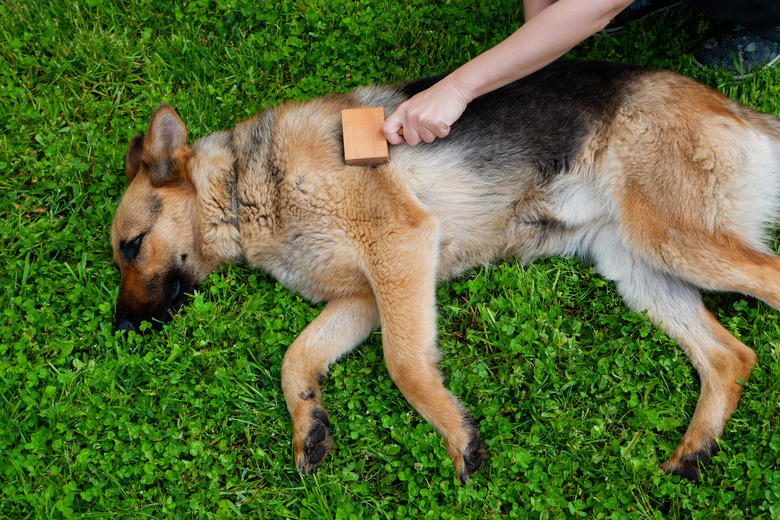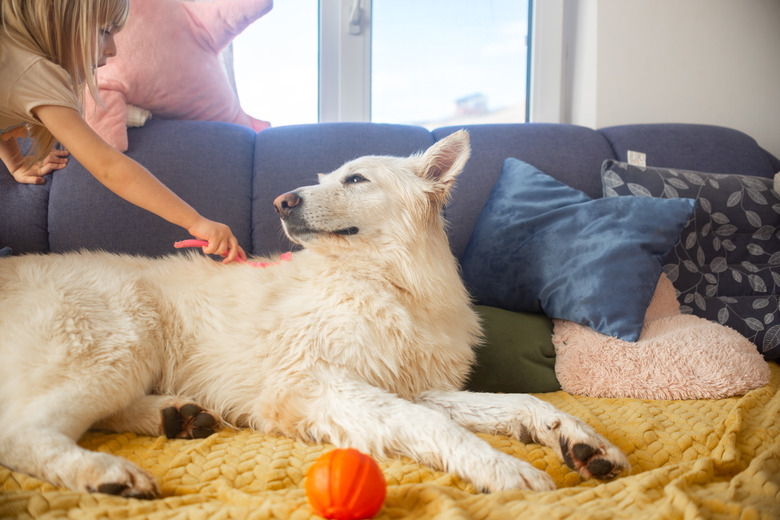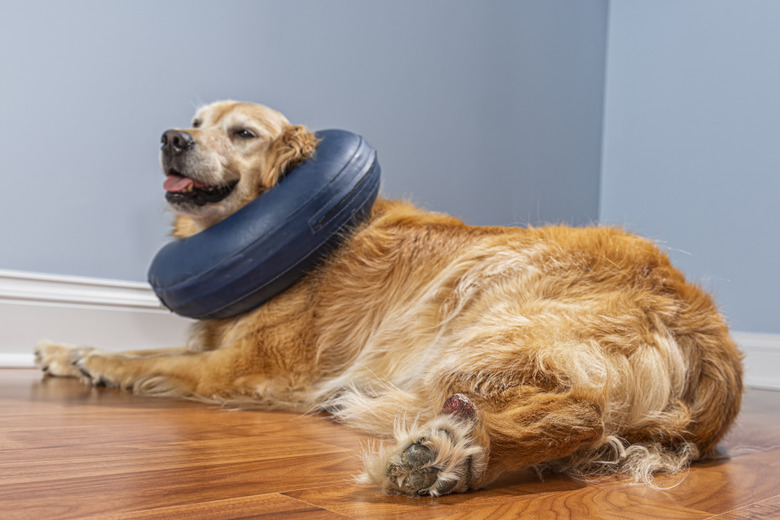How To Help Dog Hair Grow Back After Surgery
When performing surgical procedures on dogs, veterinarians need to shave some fur. After the procedure is complete, your dog might be left with a scar, and you might be left wondering if the fur will grow back completely as well as how long it will take to grow back. The outcome will depend on several factors, but there are things you can do to support the healing process and hair regrowth. Here are some general tips on how to help dog hair grow back after surgery. Remember that your veterinarian can provide personalized advice for your dog's coat.
Will my dog's hair grow back after surgery?
Will my dog's hair grow back after surgery?
It might take quite a bit of time, such as a few months, for your dog's hair to grow back after surgery. For some pets, it might even take a year or longer. And, unfortunately, if there is scar tissue with damaged hair follicles, the fur may never grow back.
Post-clipping alopecia refers to slow regrowth after fur has been shaved by a groomer or veterinarian. Also, the fur might grow in differently or might not grow in at all. Certain dog breeds, such as those with denser coats, may be more susceptible to this type of hair loss. Examples include the Alaskan malamute, Siberian husky, German shepherd, and golden retriever.
What should I do for my dog's hair after surgery?
What should I do for my dog's hair after surgery?
After surgery, your veterinarian can give you instructions on how to keep your dog's skin clean, support healing and hair regrowth, and avoid problems like infections. They can also provide information on what to expect regarding the hair cycle and growth, including how long it may take based on your dog's breed, age, health, and other factors.
You don't want your pet to end up with bald spots or an uneven coat. So, if your canine's fur is growing back thinner, is taking a really long time to grow back, or isn't growing back at all, let your veterinarian know. They can run tests to determine if an underlying health condition, such as a hormonal imbalance or hypothyroidism, is causing the hair growth problems. Once the cause is determined, your veterinarian may provide recommendations on how to help the hair grow back.
What can I do to help my dog's fur grow back?
What can I do to help my dog's fur grow back?
Follow your veterinarian's instructions closely to support proper healing of the surgery site. Use the right products to gently and thoroughly clean the skin without damaging it. Your veterinarian might recommend a specific dog shampoo to bathe your pet and reduce itchiness or irritation.
Remember that by supporting the healing of the skin, you could help the fur grow back. So, stop your pet from biting or scratching at the incision site. Your veterinarian might also prescribe a topical product that can provide soothing relief and moisture.
In addition, your veterinarian might suggest an oral supplement, such as melatonin for dogs, to help the hair grow. Follow their instructions regarding dosage to give your dog the correct amount for the safest results.
Making sure your pet isn't overly active may be necessary after surgery. This could help the skin heal without the risk of it stretching or tearing, and it might also ensure the hair will grow back from healthy follicles.
Home remedies for dog hair regrowth
Home remedies for dog hair regrowth
There are some things you can do at home to help your dog's fur grow back after surgery. Here are some examples:
- Stimulate hair growth: Once the skin has healed, you might try simple strategies, such as massaging or brushing your dog, to stimulate blood flow to the area and promote hair growth.
- Support hair growth from within: Changes to your dog's diet, such as switching to a food that's higher in omega-3 fatty acids, might support the health of the skin and coat. You might consider adding a supplement, such as fish oil or vitamins, to your dog's food. Before altering your pet's diet or giving them any supplements or treats that claim to help with hair growth, talk to your veterinarian, especially if your dog has been diagnosed with a medical condition or is taking medications.
- Try veterinarian-recommended topical products: Before using any topical products that you can buy over the counter, consult with your veterinarian to confirm that they're safe and appropriate, even if they're natural. For instance, you might come across information about essential oils for hair growth, but some oils can be harmful to dogs, so you need to be cautious.
How to prevent hair loss after a dog's surgery
How to prevent hair loss after a dog's surgery
Your dog might be tempted to bite or lick the incision site and surrounding area. This could create hot spots that can damage the skin and result in more scarring that might inhibit hair growth, and it might cause additional hair loss.
Thankfully, there are various products to stop this. For example, you can try a dog cone, e-collar, bandage, wrap, or recovery suit that will protect the area from your dog's teeth and claws. See what works best for your pet and causes the least amount of stress.
The bottom line
The bottom line
Although you might assume that your dog's fur will grow back right away after it's shaved, there are instances in which it might take longer than you expect, or it might not grow back at all. The results will depend on the health of the hair follicles, whether there's extensive scarring, and if there are any underlying health problems affecting hair growth. Also, some breeds might be more susceptible to post-clipping alopecia. Your DVM can guide you when it comes to skin healing and hair regrowth and can provide recommendations for prescription and over-the-counter solutions, so follow their directions to increase the odds that the fur will grow back and cover the incision site perfectly.



